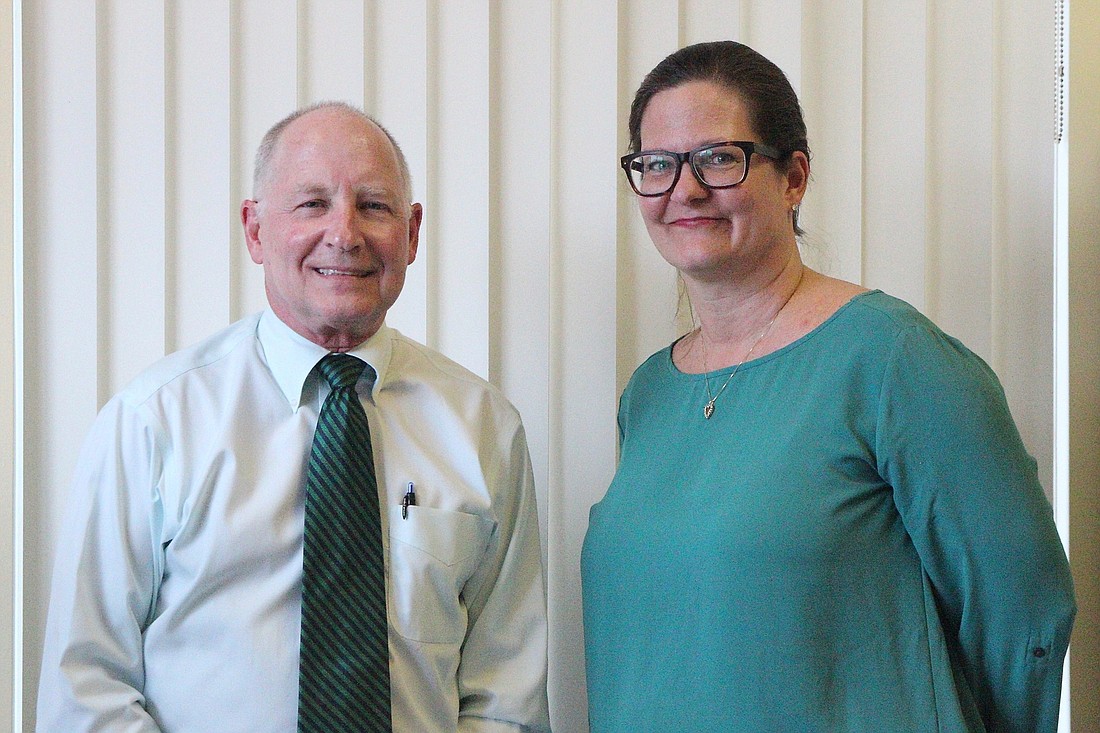- April 19, 2024
-
-
Loading

Loading

As you look at how things are playing out in the county so far, what’s your biggest concern?
SNYDER: We’re mainly concerned about elderly folks who have the comorbidities. ... These are the folks that we need to be very aware of, make sure that they get treatment, and if they are able to self isolate at home, they’ll be monitored by their doctor, or monitored by us.
"I feel like the community is doing a great job — cities, county, organizations like the chamber, like Rotary, like churches — they are doing a great job in practicing social distancing."
— BOB SNYDER, DOH-Flagler administrator
What’s that monitoring look like, in practice?
SNYDER: We’ll monitor them by telephone. We’ll stay in contact with them to make sure their condition doesn’t worsen. ... Another scenario might be, we have an uptick in cases here in Flagler. That’s when we, our public health nurses, they will initiate an epidemiology investigation. We’ll get a good sense of who have you been in close contact with, where have you been socially for the last 14 days … so we can make contact as best we can with those individuals and put them on alert, and monitor not just the positive case, but that person’s contacts within the last 14 days. So that will become very resource intensive.
Do you have enough people to do that if there’s a big surge?
SNYDER: We have about seven or eight staff members now that are trained and doing the contact tracing, and if we need more resources there’s a number that we can call in Tallahassee.
What about tests? Will there be a point where anyone who feels they have symptoms will be able to get one if they want it?
SNYDER: It depends on the supply. In essence, we had a triage in the beginning here, testing, by sticking to this [CDC] criteria because of that.
What’s the turnaround time for the tests?
SMITH: It depends. Apparently Quest now has much more capability than they used to. ... They had been sending everything to the West Coast, to California, but now they have a facility in Tampa that’s online.
SNYDER: Quest can do 20,000 a day in their commercial lab in Tampa. ... I would say two to three days.
I know that the Health Department, when someone tests positive, is just releasing their county of residence. ... But are they notifying locations that the person may have recently been? So, if the person’s been hanging out at a bar, does the bar get notified so they know to disinfect?
SNYDER: Yes.
What’s the reasoning behind not releasing anything other than the county?
SNYDER: That is the communication protocol. ... We will never share the whereabouts of a patient who’s tested positive, nor a person under investigation ... because we respect HIPAA, and we respect the privacy and confidentiality of people who are sick.
Since this started, I’ve been noticing how often I touch things other people have touched and then end up transferring those germs to something I own and will touch later. For instance, using the touchpad at a gas pump and then touching my wallet and credit card. How much of an issue is that form of transmission versus, say, getting coughed on?
SNYDER: Let’s say someone sneezes and coughs while pumping gas, and they sneeze all over the pump. Well, yes, that next person — that virus can stay there, I understand, for up to four days.
SMITH: It’s a wakeup call that I don’t think any of us really expected.
SNYDER: There’s probably a silver lining in that. I’ve seen behavior change the last seven days, of people coughing and sneezing properly, washing their hands, trying not to touch their face.
I know the recommendation for hand sanitizer is 60% alcohol or more, but if someone wants to clean a surface, like a countertop, for COVID-19, what’s best for that?
SNYDER: Everyday household cleaning products work. ... Lysol wipes are effective.
So, is this COVID-19 going to have a season like the flu, and then we’ll be seeing it again this time next year?
SNYDER: I am sure the pharmaceutical companies and researchers ... around the world are all chiming in to try to figure that out. We just don’t know yet.
There’s been a lot of talk about curves — whether ours will look like China’s, or Italy’s. Do you have a sense of how it will spread?
SNYDER: It depends on us — every single person in our country — doing the right thing, practicing these things. ... They say a vaccine’s a year away. So right now, the ball is in our court, and the court of every community in the country.